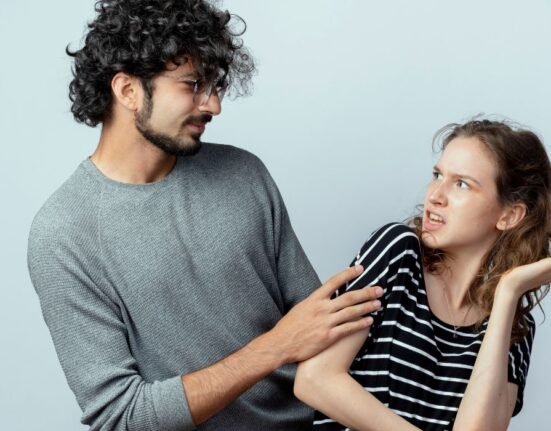Have you ever seen a picture of yourself and winced, thinking it doesn’t look like how you think you do? If so, you are not alone. Surprisingly enough, many of us do not love pictures of ourselves. From psychological bias to the technical ability to capture a photo, there are many reasons why we don’t love our selfies. This article will be a journey into the science and psychology that explains why we always end up deleting our selfies- most importantly, providing insights that may change the way you see yourself.
Mere Exposure Effect
We dislike photos of ourselves because this results mostly from the “mere-exposure effect,” a principle first explained by social psychologist Robert Zajonc back in 1968. According to Zajonc, people tend to develop a preference for things they are often exposed to. In the case of self-perception, we’re used to seeing our reflection in mirrors rather than how others see us. Photographs, however, capture a version of us that’s flipped from what we’re accustomed to. This unfamiliarity can feel unsettling.
Dr Pamela Rutledge, a Media Psychologist, explains: “We develop a sense of self based on repeated exposure. When a photo challenges that, it can feel like looking at a stranger.” (Psychology today) Takeaway: If you want to get used to how you look in photos, view them more often. With time, the unease will pass, and you’ll become accustomed.
Self-Discrepancy Theory
Developed by psychologist E. Tory Higgins, self-discrepancy theory explores the rift between how we see ourselves (the “actual self”), how we wish to be (the “ideal self”), and how we think others see us (the “ought self”). Photos often highlight physical traits we’re self-conscious about, amplifying the discrepancy between our actual and ideal selves. A blemish, an unflattering angle, or a forced smile can feel magnified in photos, distorting our self-perception. Dr Vivian Diller, a clinical psychologist, notes: “Photos freeze a moment in time, capturing imperfections that our dynamic self-image often glosses over.” (Psychology today) Takeaway: Remember that a picture is one snapshot moment in time, not the total of who you are.
Camera Distortions and Angles
Cameras capture images in an unflattering way, at least as far as facial proportions go. Wide-angle lenses or selfies taken from real close-ups can distort those proportions. According to a 2018 study by Paskhover et al., selfies taken at 12 inches make the nose appear up to 30% larger than it is.
This distortion results in dissatisfaction over photographs since the image is not as seen in the mirror. Dr. Boris Paskhover speaking to CNN: “Camera lenses magnify specific features, especially when snapped up close. What you see isn’t a true face.” Takeaway: To achieve an accurate picture step back from the camera using a greater focal length to minimize distortions.
Negativity Bias
People generally tend to focus more on the wrong things and imperfections. This is because of the negativity bias. Negative experiences weigh more heavily in our lives than positive ones; however, the same principle applies to how we subject ourselves to criticism of our appearance in pictures. Neuropsychologist Dr. Rick Hanson says, “The brain is Velcro for negative experiences and Teflon for positive ones. This makes us focus on imperfections in photos even though no one else notices.” (Psychology today). Takeaway: Practice self-compassion. Remember, people will focus on your general appearance rather than small imperfections.
Role of Social Comparison
It is a piece of cake to compare your authentic photos with others’ heavily edited ones in a world where most things on social media are fabricated. The result is always a decrease in self-esteem and sometimes body dysmorphia. A 2020 study by Fardouly et al. found that exposure to heavily doctored images on social media increases body dissatisfaction, especially among young adults. Takeaway: Acknowledge unrealistic portrayals of beauty and embrace the diversity of appearances.
Read More: A Nuance Look At Social Media and Self-Perception
We’re More Critical of Ourselves Than Others Are
Psychologists call it the “spotlight effect.” It is the tendency to believe how much other people notice or judge your appearance. This self-critical lens makes us see flaws that most people don’t even register. Dr. Thomas Gilovich, who coined the term, says: “We’re so absorbed in our self-picture that we believe that people look at us as much as we look at ourselves. Really, they don’t.” (psychology today) Take away: Combat the spotlight effect by turning your attention outwards and reminding yourself that most people are more absorbed in their appearance than in yours.
Evolutionary Psychology and Symmetry
Evolutionary psychology suggests that, in fact, humans are wired to view symmetrical faces as more attractive because symmetry is often a symbol of health and genetic fitness. However, most people’s faces actually are asymmetrical, and photos will inevitably accentuate these mismatches with lighting and angles. Takeaway: Take pride in your natural uniqueness. The truth is, perfect symmetry is rarely found in nature, and asymmetry gives a face character.
Emotional Contamination
Your mood when you are viewing the picture may change how you respond to the picture. When you already have some bad feelings or stresses, you will likely negatively describe the picture. Todorov et al. (2008) demonstrated that emotions play an important role in facial expression judgment, even when using your own. Lesson: Avoid judging the pictures if you are in a bad mood. Wait for you to get better.
The Problem with Static Images
In real life, our faces are animated, constantly shifting through expressions and gestures. Photos, however, freeze these dynamic movements, often creating an unnatural or awkward representation. Takeaway: Instead of focusing on a single photo, consider videos or candid images that better capture your personality and natural expressions.
Read More: Self Punishment and Self Love
Cultivating Self-Acceptance
The cure for not liking your photos lies in accepting your true self. Realise that photos just comprise a tiny fraction of who you are. Leading researcher in self-compassion Dr Kristin Neff says, “Learning how to be kind to ourselves can shift the focus from criticism to appreciation. Photographs no longer have the power to harm us when we stop judging our appearance as an aspect of our worth.”
Conclusion
The battle to accept pictures of ourselves is a subtle play between psychological biases, self-perception, and influences around you. The understanding of this will help in gazing at the self-image with more compassion and perspective. The next time you see a picture of yourself, remember: it’s not the whole story of who you are.
References +
- Fardouly, J., Diedrichs, P. C., Vartanian, L. R., & Halliwell, E. (2020). Social media and body image concerns: Current research and future directions. Current Opinion in Psychology, 36, 56-61.
- Gilovich, T., Medvec, V. H., & Savitsky, K. (2000). The spotlight effect in social judgment: An egocentric bias in estimates of the salience of one’s own actions and appearance. Journal of Personality and Social Psychology, 78(2), 211-222.
- Paskhover, B., Yagoda, S. H., Kurkjian, T., De La Cruz, C., Gurna, S., & Wong, B. J. (2018). Nasal distortion in short-distance photographs: The selfie effect. JAMA Facial Plastic Surgery, 20(4), 333-335.
- Rutledge, P. (2016). Mirror, mirror: Why we like our reflection better than photos of ourselves. Psychology Today.
- Todorov, A., Pakrashi, M., & Oosterhof, N. N. (2008). Evaluating faces on trustworthiness after minimal time exposure. Social Cognition, 26(5), 482-492.
- Zajonc, R. B. (1968). Attitudinal effects of mere exposure. Journal of Personality and Social Psychology, 9(2, Pt. 2), 1-27.













Leave feedback about this